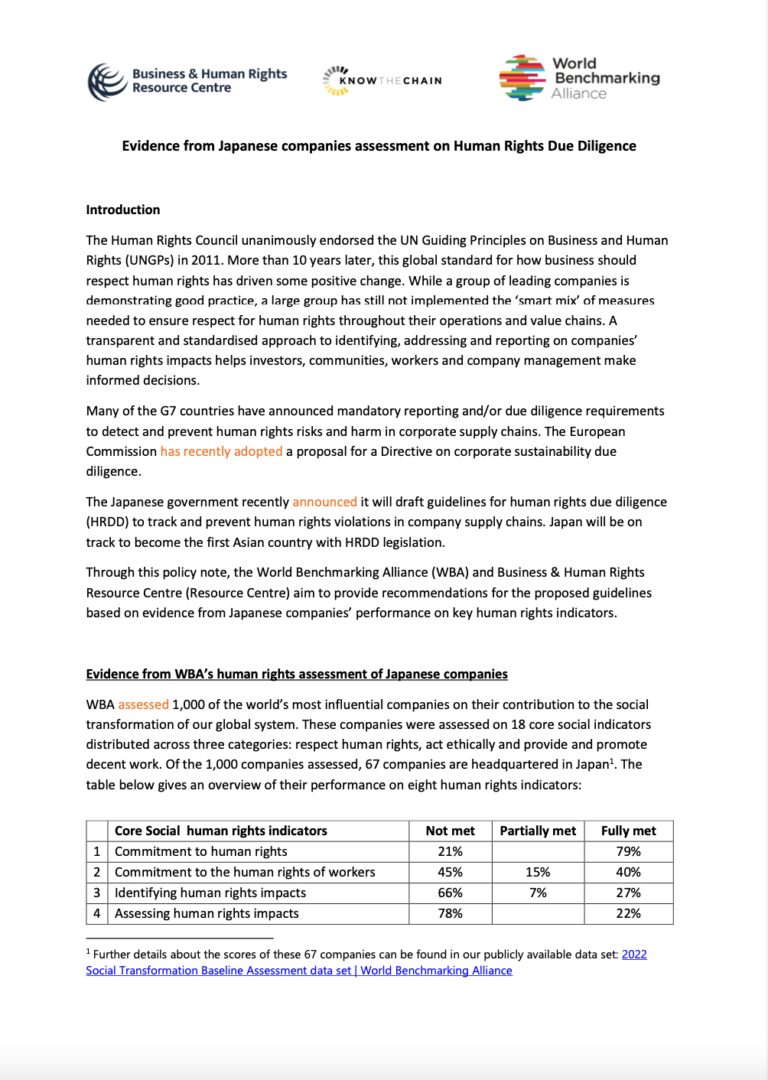The Human Rights Council unanimously endorsed the UN Guiding Principles on Business and Human Rights (UNGPs) in 2011. More than 10 years later, this global standard for how business should respect human rights has driven some positive change. While a group of leading companies is demonstrating good practice, a large group has still not implemented the ‘smart mix’ of measures needed to ensure respect for human rights throughout their operations and value chains. A transparent and standardised approach to identifying, addressing and reporting on companies’ human rights impacts helps investors, communities, workers and company management make informed decisions.
Many of the G7 countries have announced mandatory reporting and/or due diligence requirements to detect and prevent human rights risks and harm in corporate supply chains. The European Commission has recently adopted a proposal for a Directive on corporate sustainability due diligence.
The Japanese government recently announced it will draft guidelines for human rights due diligence (HRDD) to track and prevent human rights violations in company supply chains. Japan will be on track to become the first Asian country with HRDD legislation.
Through this policy note, the World Benchmarking Alliance (WBA) and Business & Human Rights Resource Centre (Resource Centre) aim to provide recommendations for the proposed guidelines based on evidence from Japanese companies’ performance on key human rights indicators.

